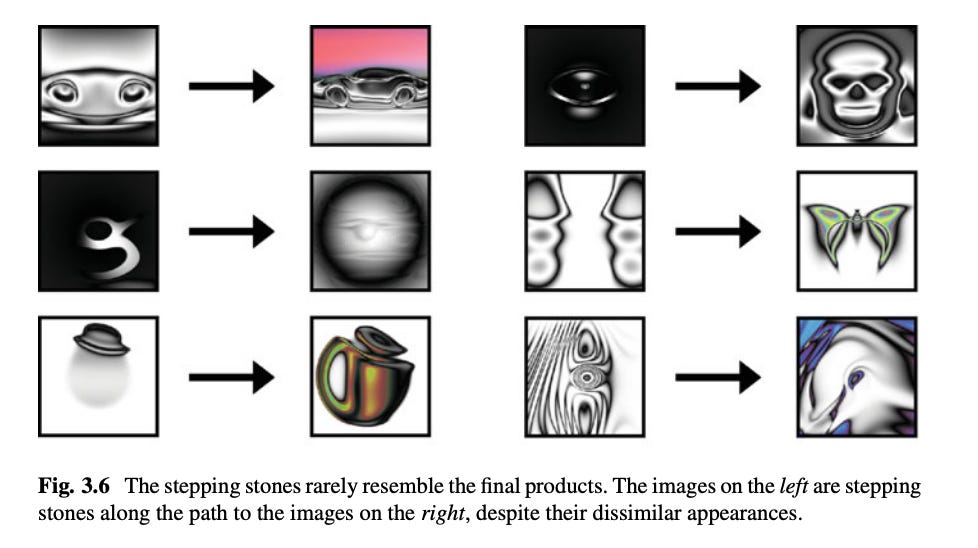#76: You Can't Always Get What you Want
But if you try, well, you might find you get what you need
There’s a Rolling Stones song that goes like this:
You can't always get what you want
You can't always get what you want
You can't always get what you want
But if you try sometimes, well, you might find
You get what you need
Ah, yeah
Oh
Earlier this week, I was spending an afternoon in my local park, where I listened to a young man singing and playing this song on his acoustic guitar.
I pondered over the meaning of the song until it sufficiently haunted me.
Two days later, I was riding my bike down to the water. My mind wandered to a book I recently read called Why Greatness Cannot be Planned by Joel Lehman and Kenneth Stanley, two Artificial Intelligence researchers.
Joel and Ken write:
Objectives are like things that we want. Where do our wants come from? Some come from society telling us wants from magazines, books, TV.
Family values as well, right? Community values, too, right? (the circles we are in).
Ah-ha!
Going back to the Rolling Stones song – we don’t always get what we want means we don’t always reach our objectives.
This may sound defeatist —why did we not get what we want? Was it our fault?
Joel and Ken make the argument that, no, it’s not our fault that we didn’t get what we want. We didn’t reach our objectives because, despite their prevalence in our society, objectives are illusions that serve as reassuring measures against the unpredictability of life.
In other words, objectives are a social lubricant, intended to make us feel more stable in an unstable world.
Joel and Ken write:
Our culture teaches us that if we set an objective and work hard, put our mind to it, reaching that objective is possible.
The result of this a bunch of metrics, measurements, and assessments woven into our lives, like we have become slaves to objectives, toiling away towards impossible perfection.
I would have thought Joel and Ken were crazy two years ago, before the Covid-19 pandemic and the current geopolitical situation with the Russia-Ukraine war. But facing the uncertainty of life head-on has made me realize that they may be onto something.
So why do we bother with objectives if we don't even know what we want? It's like setting ourselves up for failure before we've even started.
Joel and Ken conducted a scientific experiment to demonstrate that people don’t actually know what they want — and that facing that uncertainty is good for us in the long term!
Let me explain.
Joel, Ken, and a research group built a website called Picbreeder where visitors could literally breed pictures. Similar to animal breeding, pictures on the site would be able to have “children” that are slightly different from their parents.
So, what does this have to do with objectives? Well, the objective is where the visitor hopes the breeding will lead – that is the objective. For example, with horses the objective might be to breed a fast horse. Or a visitor may want to breed a picture of a face, or an animal.
Here’s the kicker: the ultimate objective almost never looked like the stepping stones to achieve the objective. So breeding a fast horse meant that a visitor would first need to breed some Alien Faces and Cars. The stepping stones almost never resembled the final destination.
As Joel and Ken write,
The distant objective cannot guide you to itself – it is the ultimate false compass. In any large, uncharted search space, stepping stones represent the waypoints that must be crossed to eventually reach the objective.
Today’s world is an unchartered search space, one of significant complexity, where our preconceived notions, many of the things that once worked, no longer work. We need to unlearn our old behaviors and be more flexible, adaptable, and open-minded, so we can create beauty. But it’s not just about unlearning behaviors – we need to learn new ways of thinking, and feeling, so we can thrive in this new world.



